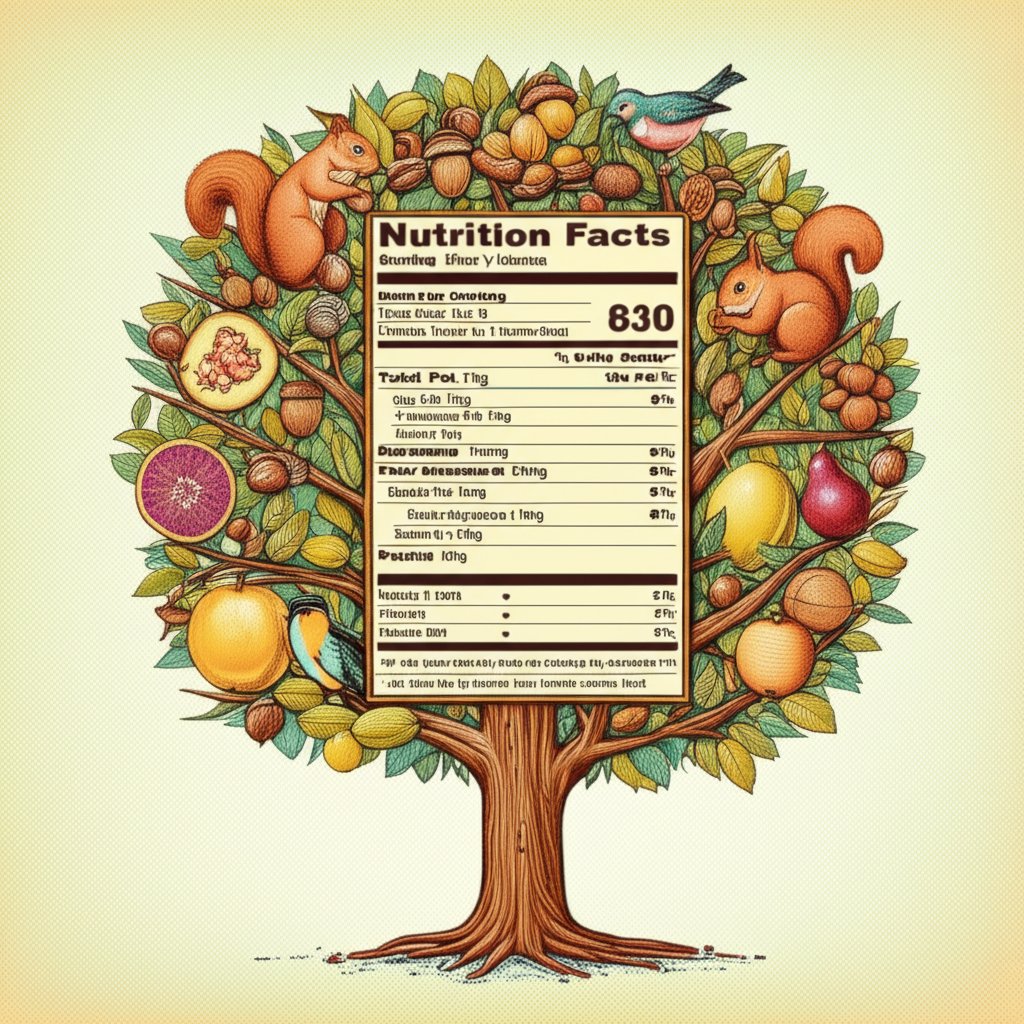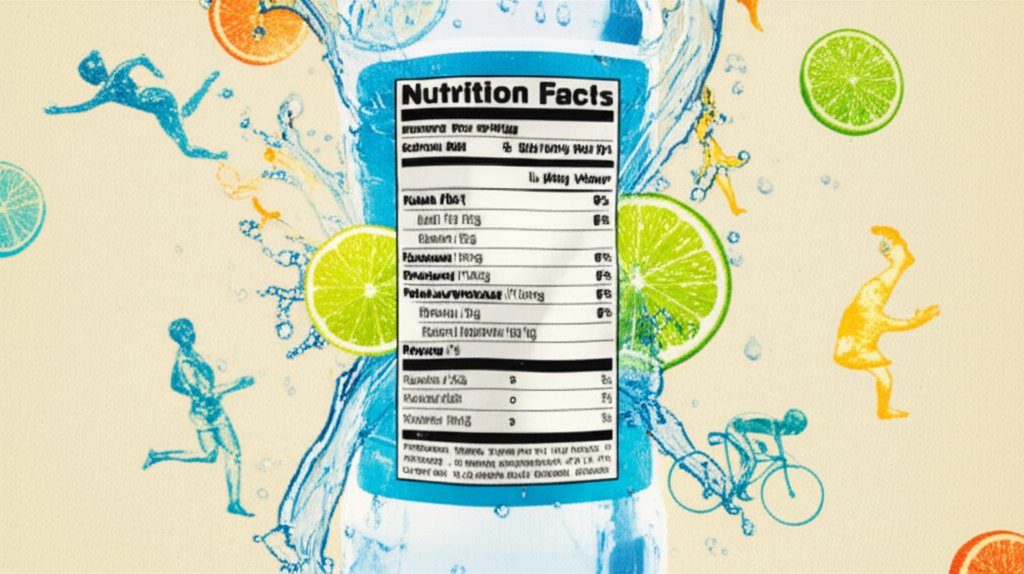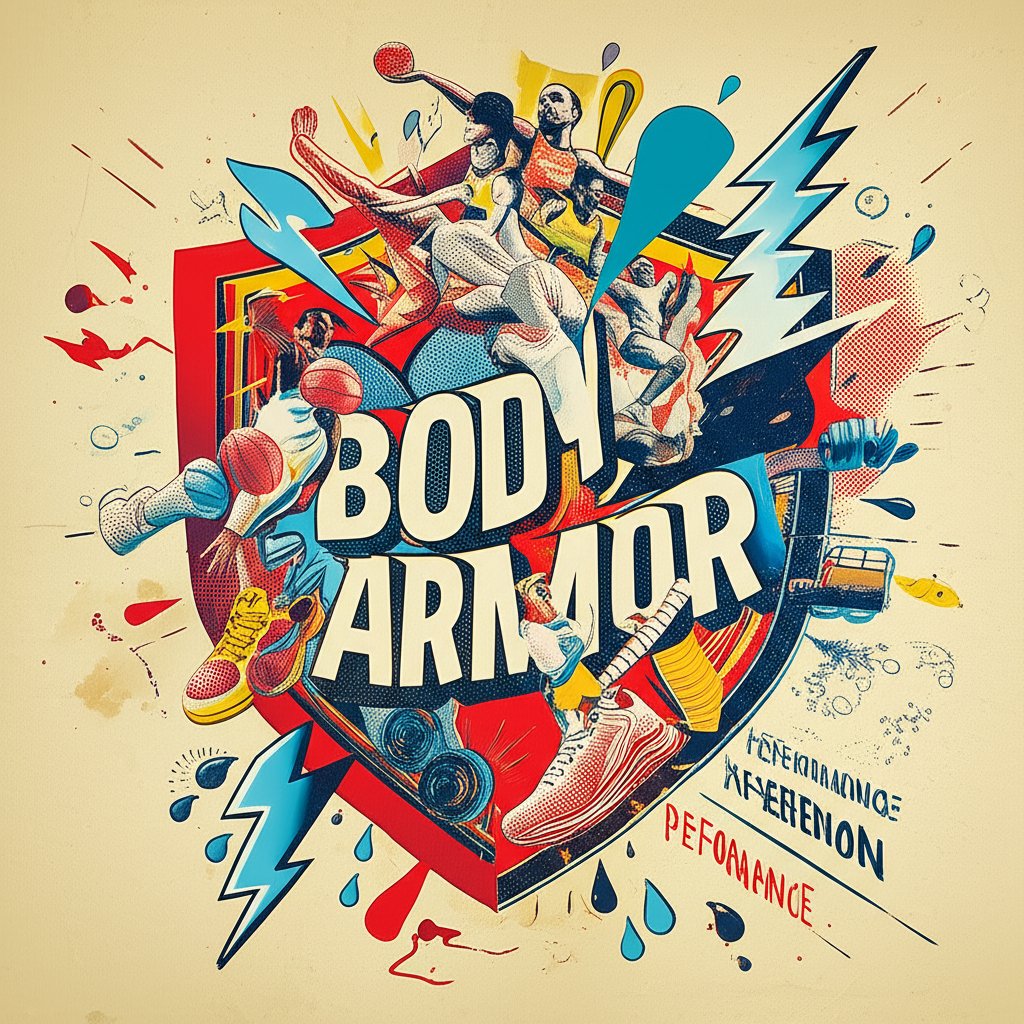Staying hydrated is crucial, especially when you’re pushing your body. You’ve probably seen BodyArmor sports drinks lining the shelves, but have you ever really looked at the body armor nutrition facts to see what’s inside? This guide dives deep into what makes BodyArmor tick, from electrolytes to sugar content, so you can make informed decisions about your hydration.
At a glance:
- BodyArmor is packed with electrolytes like potassium, magnesium, and calcium.
- It avoids artificial sweeteners and flavors, using natural alternatives instead.
- The drink contains added vitamins and antioxidants.
- It’s lower in sodium than many traditional sports drinks.
- The sugar content, while natural, might be a concern for some.
What Exactly Is BodyArmor?
BodyArmor is a sports drink designed to help you rehydrate and replenish electrolytes lost during physical activity. It distinguishes itself from many competitors by focusing on natural ingredients, steering clear of artificial sweeteners, flavors, and colors. They’re also committed to using non-GMO ingredients. The beverages come in a wide array of flavors, designed to be both refreshing and effective for hydration. This focus on natural ingredients may set it apart from other, similar sports drinks.
Decoding the BodyArmor Nutrition Facts Label
Let’s break down exactly what you’ll find when you check the body armor nutrition facts label.
Calorie Count
A standard 16-ounce bottle of BodyArmor typically contains between 120 and 140 calories, depending on the specific flavor. If you’re watching your calorie intake, remember that this is on top of your regular meals and snacks. If you crave a lower calorie count, perhaps its time to Uncover the Nutrl Nutrition Facts
Electrolyte Powerhouse: Potassium and Sodium
BodyArmor’s biggest claim to fame is its electrolyte content. Specifically, it boasts high levels of potassium and lower levels of sodium compared to many other sports drinks.
- Potassium: A single bottle provides around 600-680mg of potassium. This mineral is essential for fluid balance, nerve signals, and muscle contractions.
- Sodium: BodyArmor contains relatively low sodium, around 15-30mg per bottle. While sodium is important for hydration, especially during intense exercise, the lower amount in BodyArmor might be a selling point if you’re generally trying to reduce your sodium intake.
Sugar Content: Natural Sweeteners at Play
BodyArmor uses pure cane sugar and fruit concentrates for sweetness, avoiding artificial sweeteners like high-fructose corn syrup. A standard bottle contains around 29 grams of sugar. While this is a natural source, it’s still a significant amount, so it’s something to be mindful of, particularly if you’re managing your sugar intake or dealing with conditions like diabetes. However, sugars actually help your body, being an essential piece of some sports drinks for quick energy during exercise.
Vitamins and Antioxidants: A Boost for Your Body
Beyond hydration and electrolytes, BodyArmor provides a dose of vitamins and antioxidants:
- Vitamins A, C, and E: These antioxidants help protect your cells from damage caused by free radicals, supporting overall health. The drink contains 10% of your daily value of these vitamins.
- B Vitamins: BodyArmor includes B vitamins like B3, B5, B6, B9 (folic acid), and B12. These vitamins are crucial for energy production, helping your body convert food into fuel.
Other Notable Ingredients
- Coconut Water Concentrate: This natural source of electrolytes contributes to hydration and gives BodyArmor a distinctive flavor. Coconut water is rich in potassium and magnesium, essential for maintaining fluid balance.
- Natural Flavors and Colors: BodyArmor uses natural flavors derived from real fruit and natural colors from fruits and vegetables, avoiding artificial additives.
BodyArmor vs. The Competition: What Sets It Apart?
How does BodyArmor stack up against other popular sports drinks? Here’s a quick comparison:
- Electrolytes: BodyArmor generally offers a higher potassium content and lower sodium content than brands like Gatorade.
- Sweeteners: BodyArmor uses natural sweeteners (cane sugar, stevia) while many traditional sports drinks rely on high-fructose corn syrup or artificial sweeteners.
- Additives: BodyArmor avoids artificial flavors and colors, whereas many competitors use them.
This chart summarizes those differences:
| Feature | BodyArmor | Typical Sports Drink (e.g., Gatorade) |
| —————– | —————————— | ————————————– |
| Sweeteners | Cane Sugar, Stevia | High-Fructose Corn Syrup |
| Electrolytes | High Potassium, Low Sodium | Lower Potassium, Higher Sodium |
| Artificial Additives | No Artificial Flavors/Colors | Often Contains Artificial Additives |
Who Is BodyArmor Best Suited For?

BodyArmor can be a good choice for:
- Athletes needing potassium replenishment: The high potassium content might be particularly beneficial.
- Individuals seeking natural ingredients: BodyArmor’s commitment to natural sweeteners, flavors, and colors appeals to those avoiding artificial additives.
- People looking for lower sodium options: If you’re generally trying to limit sodium, BodyArmor’s lower sodium content could be a plus.
However, it might not be the best choice for: - Athletes needing significant sodium replacement: During prolonged, intense exercise, you might need a sports drink with higher sodium levels to replace what’s lost through sweat especially if you’re exercising intensely. In this case you may be better off with their Flash IV variety, which has more sodium.
- Individuals closely monitoring sugar intake: The 29 grams of sugar per bottle could be a concern. However, it should be noted that sugars do help your body.
- Individuals with soy allergies: One potential allergen to note in BodyArmor drinks is soy.
Exploring BodyArmor’s Product Line: Options for Everyone
BodyArmor offers several variations to cater to different needs and preferences:
- BodyArmor SuperDrink: The original formula, providing a balance of electrolytes, vitamins, and natural sweeteners.
- BodyArmor Lyte: A lower-calorie and lower-sugar option, sweetened with stevia and erythritol sugar alcohol. This is an option for those carefully watching their sugar intake. You’ll also find that the rest of the nutrition information is about the same as its original counterpart; however, it only has 15 calories per 16 oz. vs. 120 calories per 16 oz. in the regular version.
- BodyArmor Zero Sugar: This option has zero sugar and is sweetened with a combination of sugar alcohol (erythritol) and stevia, for those who want to avoid cane sugar altogether.
There are four flavor options of BodyArmor that are sweetened with stevia instead of cane sugar.
Potential Benefits of Drinking BodyArmor
- Effective Hydration: The combination of electrolytes and coconut water concentrate helps replenish fluids lost during exercise.
- Muscle Function Support: Potassium plays a key role in muscle contractions, potentially reducing cramps and improving performance.
- Energy Boost: B vitamins contribute to energy production, while the natural sugars provide a quick source of fuel.
- Antioxidant Protection: Vitamins A, C, and E help combat oxidative stress and reduce inflammation.
- Great taste The drink is infused with coconut water concentrate , offering a natural source of electrolytes. This inclusion not only enhances the flavor but also contributes to its hydrating effect.
Potential Drawbacks to Consider
- Sugar Content: While natural, the 29 grams of sugar per bottle can contribute to excess calorie intake and potential blood sugar spikes. The high sugar content might not be a good choice for everyone, but sugar is an essential piece of some sports drinks depending on what kind of athlete you are.
- Low Sodium for Intense Activity: Athletes engaging in prolonged, heavy sweating might need additional sodium to prevent hyponatremia (low sodium levels).
- Potential Allergens: Individuals with soy allergies should be cautious, as soy is an ingredient in BodyArmor.
- Sugar Alcohol Sensitivity The lower sugar version may not be as suitable for longer activities and exercise. It also may not be suitable for anyone who is sensitive to sugar alcohols, because they can cause some GI upset.
BodyArmor and Breastfeeding: Is It a Good Choice?

Some breastfeeding mothers have used BodyArmor to support their hydration and, by proxy, their milk supply. However, it’s crucial to consult with a healthcare professional or lactation consultant before incorporating it into your diet. While hydration is important, individual needs vary, and excess sugar intake should be considered.
BodyArmor Flavors: A Rainbow of Choices
BodyArmor comes in a wide variety of flavors, including:
- Fruit Punch
- Orange Mango
- Strawberry Banana
- Lemon Lime
- Watermelon Strawberry
- Tropical Punch, and many more
For those who can’t decide on just one flavor, Body Armor offers that include multiple flavors in one package.
Common Questions About BodyArmor Nutrition Facts
Let’s tackle some frequently asked questions:
- Is BodyArmor healthier than Gatorade? BodyArmor often emerges as a healthier choice. This is due to generally higher potassium and lower sodium levels, the avoidance of artificial sweeteners and dyes, and a short and sweet ingredient list. They don’t use any artificial sweeteners, artificial flavors or artificial colors.
- Is BodyArmor good for weight loss? While it can be part of a balanced diet, the calorie and sugar content should be factored into your overall weight management plan. Opting for BodyArmor Lyte is a recommended approach, as it has a lower calorie count.
- Can I drink BodyArmor every day? For generally active people, BODYARMOR can just be a nice alternative to water occasionally to stay hydrated. Just keep in mind that it does have a fair amount of potassium. However, excessive consumption may lead to excessive sugar intake, so moderation is key.
- Does BodyArmor contain caffeine? No, BodyArmor is caffeine-free.
- Is BodyArmor gluten-free and lactose-free? Yes, BodyArmor is gluten-free and lactose-free, making it suitable for individuals with these dietary restrictions.
Making an Informed Decision: Is BodyArmor Right for You?
Ultimately, deciding whether BodyArmor aligns with your needs depends on your individual circumstances, activity level, and dietary preferences.
- Consider your activity level: If you’re engaging in prolonged, intense exercise, you might need a sports drink with higher sodium content. If you’re looking for something lower sugar, BodyArmor has options for you.
- Evaluate your dietary needs: Factor in your overall sugar intake and any dietary restrictions or allergies like soy.
- Read the label carefully: Pay close attention to the body armor nutrition facts to understand the calorie, sugar, electrolyte, and vitamin content. For instance, you might also want to check the Propel Water Nutrition Facts Here to compare and contrast.
Final Thoughts: Hydration Tailored to Your Needs
BodyArmor can be a solid sports drink choice for hydrating and replenishing electrolytes, especially if you appreciate natural ingredients and are mindful of your sodium intake. However, be aware of the sugar content and consider whether the lower sodium levels meet your specific needs. By understanding the body armor nutrition facts, you can make an informed decision and tailor your hydration strategy to optimize your health and performance.
- Rectangular Glass Food Storage Containers For Meal Prep - January 27, 2026
- Borosilicate Glass Food Containers Keep Meals Fresh and Organized - January 26, 2026
- Choosing Glass Containers With Snap Lids for Fresh Food Storage - January 25, 2026










